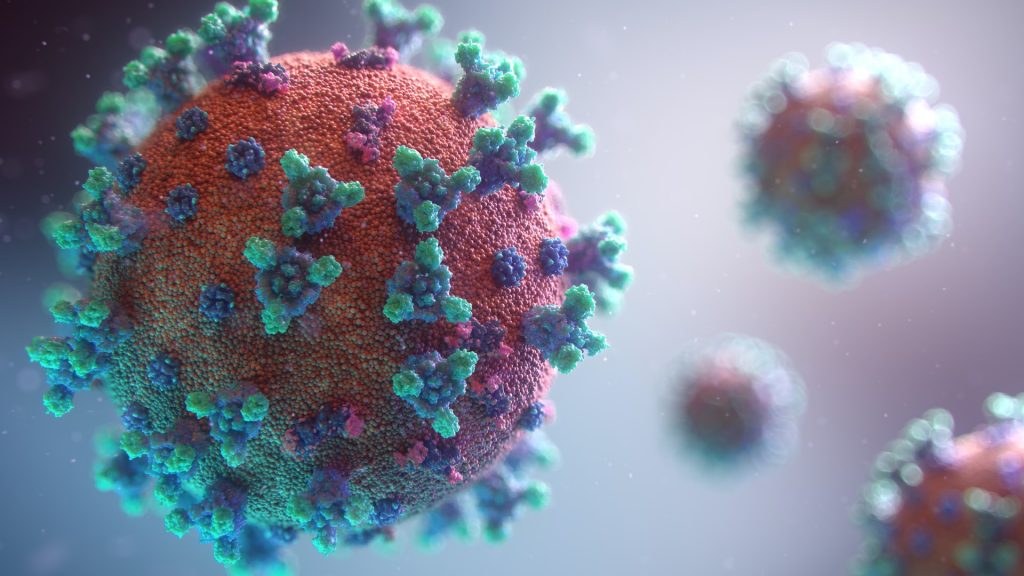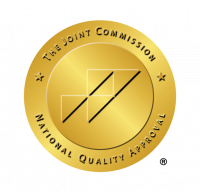Home » Alcohol » Alcohol and Your Health » Alcohol and COVID-19: Facts and FAQs
Alcohol and COVID-19: Facts and FAQs
When the COVID-19 pandemic started, there was a sharp uptick in alcohol sales across the country. Suddenly, toilet paper was not the only thing in short supply.
Studies show that this is not just anecdotal. In 2020, there was demonstrable increase in the number of days per month that people were drinking, and the number of drinks they were consuming. Between 2019 and 2020, alcohol-related deaths in the U.S. surged by 25.5%. (Prior to the pandemic, alcohol-related deaths typically increased by about 2.2% each year.)
From 2020 to 2021, alcohol-related deaths increased by an additional 10%, a total of 108,791 deaths with alcohol as the primary cause or a contributing factor in 2021. While studies suggest that drinking is returning to pre-pandemic levels, experts say that some people will have trouble cutting back and be at risk for alcohol use disorder (AUD).
Pandemic drinking will likely continue to have real consequences for people’s physical and mental health. Here’s what you need to know about alcohol and COVID.
Jump ahead: Frequently Asked Questions About Alcohol and COVID
Table of Contents
Alcohol and the COVID Vaccine
Can you drink after getting the COVID vaccine? There is no definitive research on how healthy it is to have a glass of wine or beer after getting your vaccine shot. Part of the challenge is that researchers did not look at alcohol consumption when the vaccine was being tested. This also means that the Centers for Disease Control (CDC) did not issue official guidelines.
Some countries adopted a “better safe than sorry” approach to alcohol and the COVID vaccine, recommending not drinking immediately before and after getting a shot. Some medical experts have suggested a window anywhere from three days to several weeks. However, this is based on the fact that alcohol impairs your immune system more generally. There is no actual hard evidence that a single drink after your shot will reduce the effectiveness of the vaccine.
In summary, if you want to play it safe, you should avoid drinking after the COVID vaccine. But if you stick with moderation, you’ll most likely be perfectly fine.

Alcohol and COVID Recovery
A lot of misinformation circulated during the COVID-19 pandemic, including some myths around alcohol and recovery from COVID. One popular misconception was that because alcohol-based hand sanitizers kill off the coronavirus on the skin and surfaces, alcohol will also kill the virus inside the human body.
So, does drinking alcohol kill COVID? No—This is simply not true. Alcohol does not work the same way inside of us, for the simple reason that alcohol gets diluted in our bloodstream. For most people, a single drink results in a blood alcohol concentration (BAC) of 0.01 to 0.03—a fraction of a percent. For alcohol to work as an antiseptic, its concentration needs to approach 60 to 95 percent. Common sense tells us this is far beyond a fatal level of alcohol poisoning.
On the other hand, is drinking alcohol bad when you have COVID? Alcohol consumption can depress your immune system at a time when you want it firing on all cylinders. When you are recovering from a COVID-19 infection, you want to give your body all the help you can. This means avoiding, or at the very least minimizing, alcohol consumption when you have an active infection.
Does AUD or Alcoholism Lead to COVID Complications?
It’s best not to drink alcohol when you have an active infection, but even drinking excessively before an infection can make COVID-19 more dangerous.
Research shows that for people with AUD or alcohol-related complications, COVID-19 is more likely to lead to hospitalization and death. Heavy alcohol use compromises the immune system. It damages the cells that line the surface of our lungs and is associated with shortness of breath, which is also a hallmark symptom of COVID. In fact, many of the lungs’ best defenses against respiratory illness are weakened by excessive alcohol use.
Because AUD impairs both the immune systems and the lungs, it makes it much harder for your body to fight off respiratory infections like COVID-19. This means that if you drink heavily, the effects of COVID can be worse for you than for people who drink in moderation or don’t drink at all.
The Long-Term Impact of Drinking During the Pandemic
By now, we know that statistics related to the pandemic and drinking are stunning. Both men and women were buying more alcohol. One study from 2020 showed a 14 percent jump in frequency of alcohol use among US adults. Another survey found 60 percent of people increased their drinking during the pandemic.
In particular, women increased their heavy drinking days by an average of 41 percent, worsening a pre-existing upward trend in drinking among women. In fact, Ria Health saw a significant rise in women under 40 signing up for online treatment after March 2020. Isolation, loneliness, stress, and other factors likely all played a role in this “epidemic within a pandemic.”
Using these statistics, researchers modeled the long-term health impacts of COVID-19 increases in alcohol consumption. By 2040, researchers predict, pandemic drinking will result in 8,000 additional deaths from alcohol-related liver disease, 18,700 cases of liver failure, and 1,000 cases of liver cancer.
But the researchers noted that these projections are based on the likely outcomes if there is no intervention. They hope the research will spark conversations about what we can do to lessen the toll of pandemic drinking on our health, families, and society.
Cutting Back After COVID Era Drinking
During the pandemic, you may have noticed the number of empty bottles in your weekly recycling ticking upward. Or you may be waking up hungover on a work day more and more often. But, if you’re concerned about your COVID-era drinking, what can you do?
As with the rest of our lives, COVID-19 has changed the way people access support for alcohol misuse. At the beginning of the pandemic, many rehab centers were forced to close or dramatically curtail their services. The good news is, this ultimately led to new solutions. Many treatment programs moved online, and it turns out that telehealth is a very effective way to treat problem drinking. Today, many people are turning to online programs—even without restrictions in place.
Online help for quitting alcohol or cutting back is available through an app on your smartphone, and gives you consistent support no matter what is happening in the outside world. Medical consultation, coaching, prescription medications, and virtual support groups are all accessible without leaving your house. This makes it easier to pursue a change, and stay on track, in the post-COVID world.
Alcohol and COVID: Frequently Asked Questions
Given that COVID-19 is a novel virus, and most of us have never lived through any kind of lockdown or restriction before, it is not surprising that we have found our lives disrupted. It is also not surprising that we have many questions. Answers to some of the most common alcohol and COVID FAQs can be found below:
Does drinking alcohol kill COVID?
No! This is a harmful myth spread by uninformed individuals. Alcohol kills viruses on the skin and surfaces, but it does not kill the virus inside the human body.
Can the use of alcohol affect my immune system?
Alcohol use can negatively affect the immune system, depressing how well our body responds to a range of threats. This is true for everything from the common cold to COVID-19.
Can I drink when I have COVID?
There is little research on the impact alcohol has on COVID-19 recovery. However, common sense would suggest you should not drink while you have an active infection. You want your body to focus all of its energy on the recovery and healing process.
Does drinking slow down recovery from COVID?
Drinking alcohol with COVID likely slows down your recovery. When you are drinking, your immune system is generally working at sub-optimal levels. This can cause you to recover at a slower rate. Alcohol and COVID recovery are not a great combination.
Can you drink alcohol after the COVID vaccine?
No reliable studies have been done on this issue. Some doctors and governments recommend abstaining for a few days to a few weeks. However, a single drink after receiving your vaccination shot is unlikely to cause any harm.
Why am I craving alcohol more during the pandemic?
Many people have started craving alcohol more during COVID-19 because they have found all of their usual routines disrupted. You may also be dealing with additional stressors, such as working from home and having your children learning remotely. Even though it is not the healthiest choice, quarantine drinking may be a coping mechanism.
Will my drinking return to normal after the pandemic?
Maybe yes and maybe no! As things slowly return to normal, some people may find themselves relying less on alcohol. But, other people may find that alcohol has become a habit for them—and breaking habits can be hard without help.What are some ways to manage COVID stress without drinking?
Unfortunately, stress is a part of pandemic living. However, there are different ways to deal with stress, and some of these choices are healthier than others. The next time you find yourself tempted to pour another glass of wine, think about going out for a run, or practicing some yoga poses at home. Zoom is also a great way to stay connected with friends and explore new interests, like online lectures and book clubs. Here are a few suggestions for other ways to keep busy.
How do I know if I’m drinking too much during the pandemic?
According to the CDC, lower-risk moderate drinking for women is no more than one alcoholic drink per day. Men should cap their daily consumption at two alcoholic drinks. If you are drinking more than this, you may be at higher risk for health consequences from alcohol.
Alcohol and COVID: Help For Pandemic Drinking
The COVID-19 pandemic has dramatically changed all of our lives, disrupting the status quo and introducing new words like “social distancing” into our daily vocabulary. Not surprisingly, these changes have spiked our stress levels, and thus our desire to consume alcohol.
If you notice that alcohol is becoming a problem in your life, there are new options available, including telemedicine programs. Through online coaching, you can learn strategies to address your drinking, as well as healthier ways to cope with stress. Online care also lets you avoid crowded AA meetings or doctor’s offices. This is a major benefit if you’re uncomfortable with busy places, or have pre-existing conditions that put you at risk.
The pandemic has made many things more difficult than before, but you can still get the care and support you need if you’re drinking too much. And with the added stress and risk of the COVID era, there’s never been a better time to make a change in your relationship with alcohol.
Learn more about Ria Health’s online program, or get started today.


